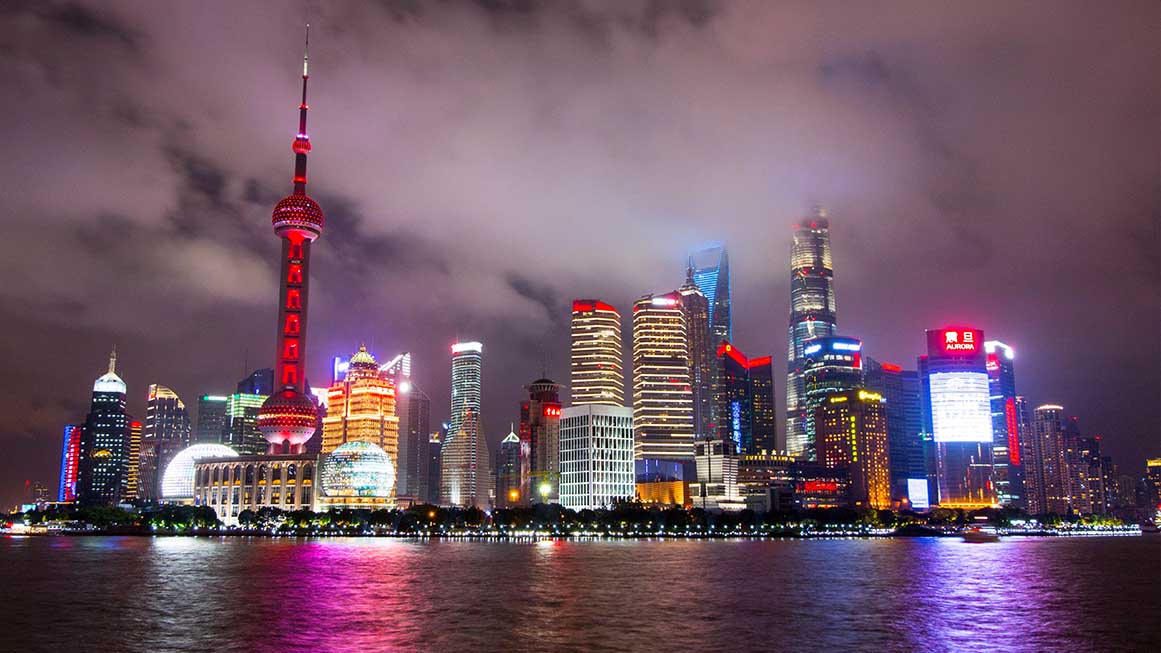06:39

China has made the right move by altogether dropping its annual growth target for 2020 amid global health, economic, and trade challenges, said economic and policy experts, to instead focus on more micro targets for the country.
Earlier on Friday at China's 13th National People's Congress, Premier Li Keqiang said that the country will not be setting a specific annual GDP target, the first time since the government began publishing such goals in 1990 while also predicting a swelling budget deficit and setting a more modest target for employment expansion.
World Bank Group China and Mongolia country director, Martin Raiser, told CGTN Global Business, that given the current environment, it was a "wise decision" by the country's leaders.
"There's a lot of uncertainty. In our own forecast that came out in April, we went for a range because we thought the uncertainty was too big for us to settle on a point estimate."
"And in any case, growth targets may have more generally outlived their value in China. I think there are many other targets besides growth that China is aiming for, and bringing them all into consistency is getting increasingly more difficult," said Raiser.
China's GDP contracted 6.8 percent year on year during the first quarter of 2020. Economists are expecting subdued growth in China for the year, despite the country's relatively quicker recovery from the pandemic compared to other regions.
"We have not set a specific target for economic growth for the year, mainly because the global pandemic situation and economic and trade situation are very uncertain, and China's development is facing some unpredictable factors," Premier Li said while presenting the government work report, an important agenda-setting blueprint delivered annually at China's legislature.
The government, said Premier Li, has pledged more spending as the COVID-19 pandemic hammers the world's second-largest economy. China is targeting a 2020 budget deficit of at least 3.6 percent of GDP, above last year's 2.8 percent, and fixed the quota on local-government special bond issuance at 3.75 trillion yuan (527 billion U.S. dollars), up from 2.15 trillion yuan last year, according to the government work report.
Wang Huiyao, founder and president at the think tank Center for China and Globalization (CCG), admitted that such an approach could be a "new normal" for the Chinese administration.
"So I think it is absolutely important. Because there are so many uncertainties hedging upon, for example … we don't know what the world will look like. So we don't know how other supplies, other exporters, countries doing business with China will (pan out)," he said.
Wang said despite the absence of a GDP growth target, China has set a series of other targets, including the elimination of poverty as well as establishing a "moderately prosperous society" by the end of the year.
08:27

People-focused stimulus helps
Meanwhile, Li's work report also said China will pursue a more proactive and impactful fiscal policy. According to the International Monetary Fund's estimate as of May 14, China has announced fiscal measures worth around 2.6 trillion yuan (365.97 billion U.S. dollars), or 2.5 percent of its GDP, to counter the impact of the coronavirus. These have been, notably, less than what other developed countries have done.
Both Wang and Raiser agreed that more fiscal stimulus is expected from the government, saying that the balance of policy tools appear to "make sense," despite a relatively less aggressive monetary policy stance.
"Today we heard some additional measures were mostly on the fiscal side. Another thing we see that is noteworthy, is that a lot of it is to support incomes, support local economies and enterprises, rather than only focusing on infrastructure investments."
"And I think again that is a rebalancing that 'makes sense,' because right now the main problem is not to increase its supply, but the main problem is to increase demand. So giving money to people so they can buy more goods, I think, in the current situation is the right thing to do," said Raiser.
According to the work report, China is aiming to create over nine million urban jobs in 2020, lower than the 2019 target of around 11 million, and an urban surveyed unemployment rate of around 6 percent, higher than 2019's goal.
Raiser said that China faces a challenge in sustaining good employment numbers.
"I think it's a challenge. Most economies link jobs to the growth rate. We don't expect China to grow at the rate it used to. (But) I think a lot of measures to improve the business climate, to encourage startups, also measures to encourage retention of workers should help," he said.
The World Bank was encouraged to see that governments were also providing support to migrant workers that may not immediately find jobs again to ensure proper livelihood.
"It is a challenging environment for employment, not just in China but everywhere around the world. I think the idea of training for more people at this time, to make them better prepared for future jobs, thinking about how the economy may change as a result of this pandemic. New sectors are likely to be growing, old sectors may be disappearing more rapidly. I think this is all part of the mix but it's challenging," he said.
Investment destination
To boost foreign investments, Premier Li said today measures included "significantly" shortening the negative list for foreign investment and committed to establishing new pilot free trade zones (FTZs).
Wang noted that the timing of the announcement coincided with "very negative sentiment" towards China, with a growing rhetoric on decoupling, from several countries.
The government position is absolutely important at this time. Premier Li said China will only open wider and faster. That sends a very strong signal.
"China still wants to maintain its export, open doors, and continue to relax the control of foreign investment. All these things make China an attractive place for the outside world," said Wang, adding that China is likely to still be a supply hub for the world.
Wang said he expects more international Fortune 500 companies to come to China to work with sectors, such as finance, once the situation comes under control, but added that China needs to "do its homework and do it well" by stabilizing its economy.
"If you look at the world now, where is the best place to invest? Has all the value chain, has all the upstream-downstream, has all the talents? China is probably the most attractive country now, after emerging from COVID-19," he observed.